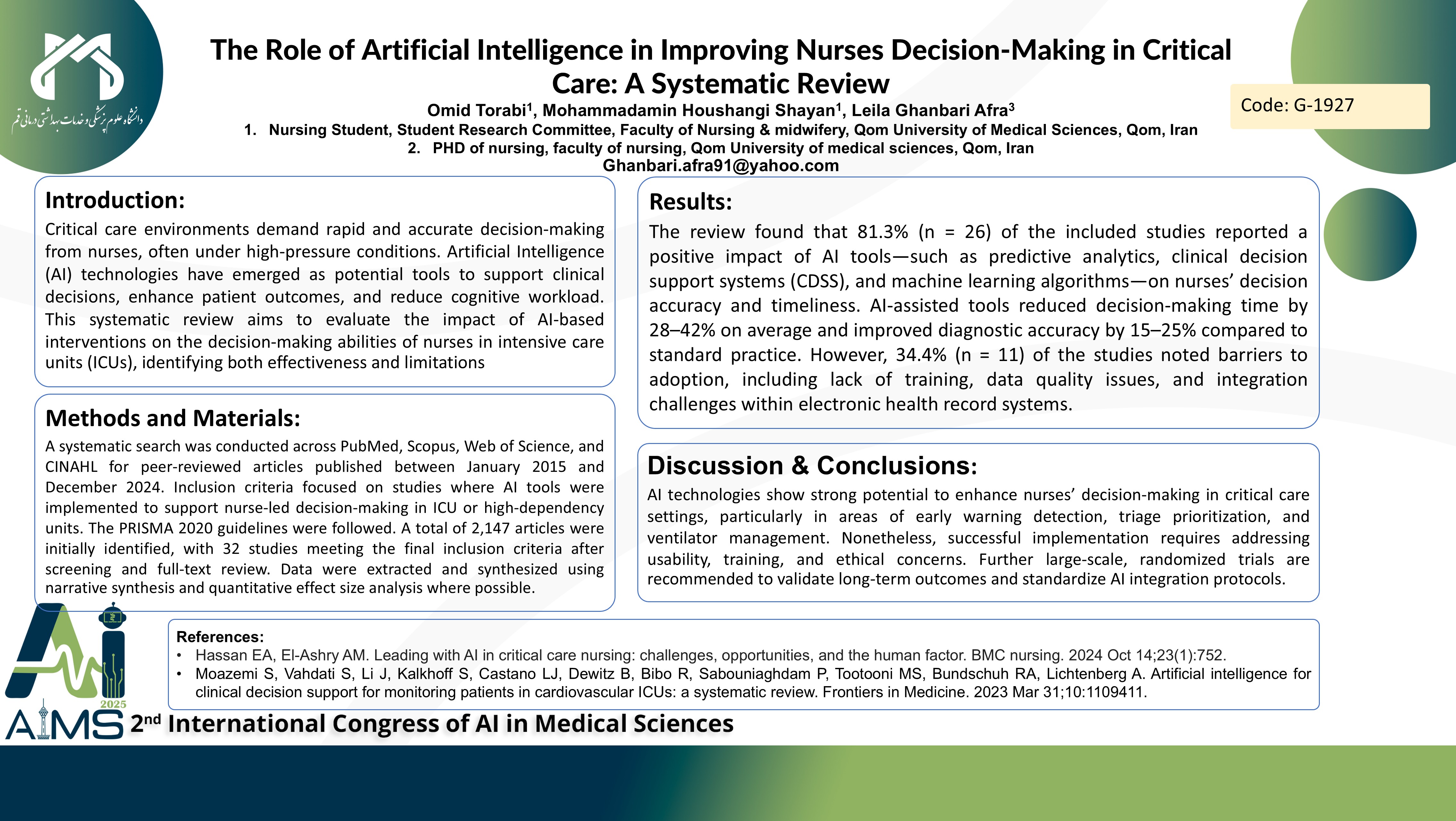نقش هوش مصنوعی در بهبود تصمیمگیری پرستاران در مراقبتهای ویژه: یک مرور نظاممند
کد: G-1927
نویسندگان: Omid Torabi ℗, Mohammadamin Houshangi Shayan, Leila Ghanbari Afra *
زمان بندی: زمان بندی نشده!
برچسب: سیستم های تصمیم یار بالینی
دانلود: دانلود پوستر
خلاصه مقاله:
خلاصه مقاله
Background & Aims: Critical care environments demand rapid and accurate decision-making from nurses, often under high-pressure conditions. Artificial Intelligence (AI) technologies have emerged as potential tools to support clinical decisions, enhance patient outcomes, and reduce cognitive workload. This systematic review aims to evaluate the impact of AI-based interventions on the decision-making abilities of nurses in intensive care units (ICUs), identifying both effectiveness and limitations. Method: A systematic search was conducted across PubMed, Scopus, Web of Science, and CINAHL for peer-reviewed articles published between January 2015 and December 2024. Inclusion criteria focused on studies where AI tools were implemented to support nurse-led decision-making in ICU or high-dependency units. The PRISMA 2020 guidelines were followed. A total of 2,147 articles were initially identified, with 32 studies meeting the final inclusion criteria after screening and full-text review. Data were extracted and synthesized using narrative synthesis and quantitative effect size analysis where possible. Results: The review found that 81.3% (n = 26) of the included studies reported a positive impact of AI tools—such as predictive analytics, clinical decision support systems (CDSS), and machine learning algorithms—on nurses’ decision accuracy and timeliness. AI-assisted tools reduced decision-making time by 28–42% on average and improved diagnostic accuracy by 15–25% compared to standard practice. However, 34.4% (n = 11) of the studies noted barriers to adoption, including lack of training, data quality issues, and integration challenges within electronic health record systems. Conclusion: AI technologies show strong potential to enhance nurses’ decision-making in critical care settings, particularly in areas of early warning detection, triage prioritization, and ventilator management. Nonetheless, successful implementation requires addressing usability, training, and ethical concerns. Further large-scale, randomized trials are recommended to validate long-term outcomes and standardize AI integration protocols.
کلمات کلیدی
Artificial Intelligence, Nursing, Critical Care, Decision-Making
